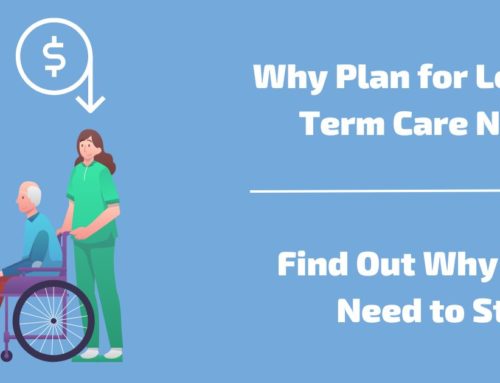According to data from the U.S. Department of Health and Human Services, roughly 70% of all retirees will need long-term care. Once they need help performing activities like driving to appointments, preparing meals, and getting dressed, long-term care options for seniors include moving into an institution versus remaining at home. Either way, finding ways to pay for those long-term care services often takes a little creativity. When your aging loved one’s retirement “nest egg” weighs in the balance, here are some of the best ways to pay for the nurturing they deserve.
The Cost of Long-Term Care
As retirees live longer, many run the risk of outliving their savings. According to the 2020 Cost of Care Survey from Genworth Financial, the long-term care costs in the U.S. are increasing at an alarming rate. For example, the median price of a private room in a nursing home during 2020 was a whopping $105,850 a year. The cost of in-home care services ranged between $53,768 and $54,912 annually, depending on where the recipient lived.
What about Medicare?
If you think that Medicare will pay for your loved one’s long-term care costs, think again. Medicare will only pay for home health care, physical therapy, a nursing home stay, long-term care hospital stay, or related skilled nursing care services for a maximum of 20 days. Medicare does not provide coverage for personal care, private duty care, custodial care, homemaker services, 24-hour care, or meal delivery services.
Payment Options for Home Care
A vast majority of seniors that need daily living assistance choose to receive it at home. Using in-home care as an example, here are some creative ways to finance those services:
Long-term care insurance
Long-term care (LTC) insurance may cover all or part of the services, with premiums that vary depending on age, gender, health, geographic location, and more. A hybrid long-term care policy is another option, which is a policy that is part life insurance or annuity and part long-term care coverage. You can learn about the different types of LTC insurance policies and their estimated premiums through the American Association for Long-Term Care Insurance.
Out-of-pocket
At first, many older adults pay for care in part with their own money. They may use personal savings, a pension, retirement fund, or income derived from stocks, bonds, or proceeds from the sale of a home.
Additionally, informal caregivers that include family and friends often provide free personal care and related services, like meals, transportation, and housekeeping. To remain in their homes, many seniors also pay out-of-pocket to take advantage of adult day care programs, meal delivery programs, and other community-based services.
Government programs
Some older adults are eligible to receive government healthcare benefits that pay at least some of the expenses associated with professional caregivers. Federal and state programs that may help with nonmedical, healthcare-related costs incurred at home include:
- Centers for Medicare & Medicaid Services (CMS)
- Medicaid (Once eligibility requirements have been met)
- Program of All-Inclusive Care for the Elderly (PACE)
- Department of Veterans Affairs (Some veterans and survivors are eligible)
- Social Security Disability Income (SSDI)
National Council on Aging (NCOA)
The National Council on Aging (NCOA) is a private organization that offers a free service called BenefitsCheckUp®. This service can help you find state and federal benefit programs that pay for heating bills, housing, meal programs, and prescription drug programs for seniors.
Private financing options
In addition to those listed above, many seniors turn to private payment options to cover home care costs that include reverse mortgages, specific life insurance policies, trusts, and annuities.
When your loved one’s care weighs in the balance, choosing the best payment option for your family depends on many factors, including your loved one’s age, health status, household finances, and level of care that’s needed.
How New Wave Home Care Can Help
At New Wave Home Care, we’ve been helping families in Southern California keep aging loved ones safe and comfortable in their own homes for 10+ years now. As a licensed home care provider, we support clients and their families with personalized in-home solutions like personal care, transitional care, respite care, dementia and Alzheimer’s care, and hospice support.
When you choose New Wave Home Care in Pasadena, you can rest assured that your loved one is getting the specialized care they need from a trusted, friendly caregiver. We also connect seniors and their families with community programs to help pay for their loved one’s care. To learn more now or schedule a FREE in-home assessment for a senior in the greater Los Angeles area, please visit us at www.newwavehomecare.com.



